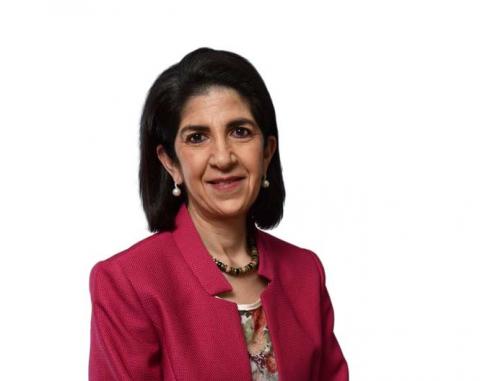Five years ago today marked a significant moment in the history of particle physics. Many of us were in the CERN auditorium. Many more, almost a billion people around the world, watched the seminar remotely.
What a day that was, the culmination of years of hard work by thousands of physicists, engineers and technicians, and what a long way we’ve come since then. Back on 4 July 2012, both ATLAS and CMS were nudging the 5-sigma threshold required to announce the discovery of a new particle. Taken together it was clear that we had a wonderful discovery on our hands. Nevertheless, our language was rightly cautious. CERN’s press release went out with the title: CERN experiments observe particle consistent with long-sought Higgs boson. That’s hardly earth-shattering language, but the global media were a little bit more upbeat, as I recall.
The initial discovery was based on a sample of just a few hundred Higgs candidates for each experiment. That was enough to tell us that a Higgs-like particle existed, and that it had a mass of around 125 GeV, but not much else. It was our first glimpse of a fascinating new physics landscape waiting to be explored. Five years on, the exploration is well under way. We have thousands of Higgs bosons in our data samples now. With this new data, ATLAS and CMS have made excellent progress in measuring the properties of the new particle, and understanding how it couples to a range of fundamental particles.
The Higgs boson is not just another particle; it is special and profoundly different from all other elementary particles observed so far. And the Brout-Englert-Higgs mechanism is remarkably linked to the least known part of the Standard Model and to some of the most important outstanding problems in particle physics today (flavour, naturalness, vacuum stability). Thus, the discovery of the Higgs boson opens new paths of exploration, provides a privileged door into new physics, and calls for a very broad experimental programme which will extend for decades. Over the coming years, the LHC experiments will continue to measure the properties of this particle with increasing precision, they will search for rare, exotic and forbidden decays, and they will look for additional Higgs bosons. It has been a fascinating five years, and we’re still just at the beginning.
The Bulletin this week asks: ‘where were you the day the Higgs boson discovery was announced?’ Well, I will never forget where I was. I was in the CERN auditorium where I had the privilege of presenting the result of the ATLAS experiment, together with Joe Incandela representing CMS, on behalf of the thousands of people who had contributed for years to the development, construction and operation of the unprecedented LHC accelerator, detectors and computing. It will forever be a highlight of my life. Happy birthday Higgs boson!
Read more about the discovery of the Higgs boson and read the stories of how people experienced the event.

